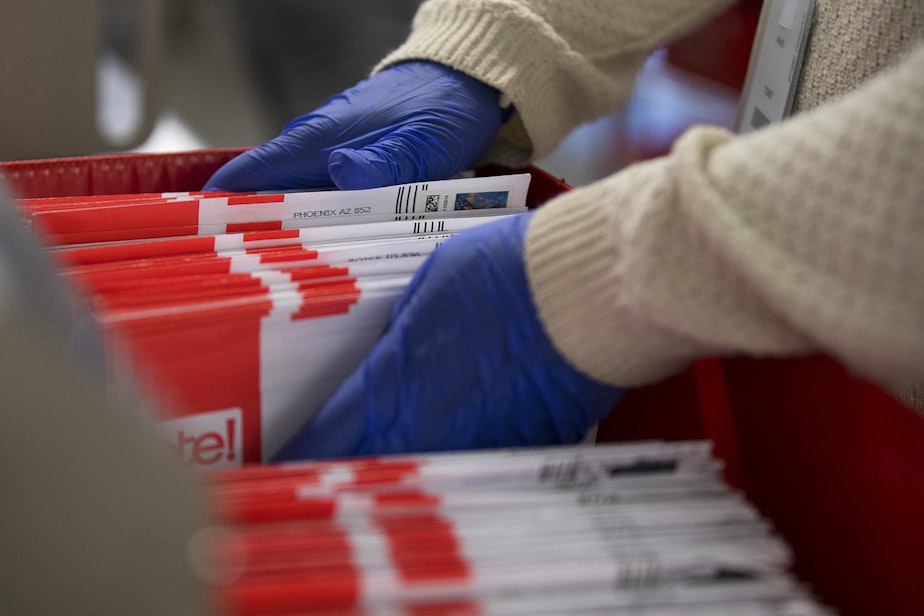Why didn't more Washingtonians vote in the 2023 election?

Turnout for this year’s November election was the lowest on record since Washington started keeping track in 1936.
Statewide, 36.41% of registered voters returned their ballot in 2023. That beats the previous low of 37.1%, held in another odd-year election — 2017, and the one before that, 38.52% in 2015.
So, what is it with odd-year elections and low voter turnout?
Washington Secretary of State Steve Hobbs says there are a number of reasons people didn't get out to vote this November.
"This is the first election in 50 years where you didn't have something statewide on the ballot," he explained.
Hobbs also noted that a recent law made it legal for 17 year olds to register to vote, provided they'll be 18 by the next election. That meant a big boost in registered voters. And only 16% of those new voters sent back their ballot this year.
Odd-year elections always lag behind in voter turnout. There’s no big gubernatorial, congressional, or presidential races reminding everyone to get out and vote.
Hobbs says that's one reason the state needs to focus more on civics education.
Sponsored
But not everyone agrees with Secretary Hobbs.
"The numbers are actually worse than are reported," explains Mark Smith. "The secretary of state calculates turnout as the number of voters divided by the number of registered voters. And notice that that excludes everybody who's not registered from the calculation. So about 75% of the eligible voters are actually registered."
That, says Smith, means 25% of Washington residents aren't being counted at all.
Smith is a professor of political science and an adjunct professor of comparative religion and communication at the University of Washington.
He says he's also skeptical about the impact of new voters, noting he would want to see comparative data on youth voting numbers for 2023 versus other odd-year elections first.
Sponsored
But he agrees with Secretary Hobbs that the lack of statewide initiatives or referenda likely did decrease voter turnout. He also points to the decline of local media as a reason for decreasing interest.
"That was a place where a lot of people used to get information about local races," he explains. "The absence of those media mean a lot of these local races, they're just kind of operating in the dark."
Andrew Villeneuve says all of these issues are a contributing factor to the main driver for voter turnout: voter fatigue.
Villeneuve is the founder of the Northwest Progressive Institute as well as the Northwest Progressive Foundation.
The Northwest Progressive Institute has advocated for aligning local elections with even-year state and federal elections. They were involved with efforts to pass a charter amendment that moved some King County races to even years in 2022.
Sponsored
Secretary of State Hobbs opposes the move to even-year elections. He argues that voters won’t have time to learn about local races, and there will be a lot of undervotes.
He also thinks candidates for smaller races won’t be able to break through in grabbing voter attention. He also points out staffing issues for county elections offices.
But, while there may be a lot going on during even year elections, Villeneuve says that also means increased interest in the elections. According to canvassers, just knowing that the elections are happening is a plus for local races.
University of Washington Professor Mark Smith agrees.
"The more times you ask people to vote, the fewer times they actually do vote because of voter fatigue," Smith says. "So there certainly is higher turnout, when you concentrate more races on the on the same ballot."
Sponsored
Smith also agrees with Hobbs that more races on a ballot may mean less attention on individual races.
"But the cost of that is you get fewer people voting, and it's a smaller pool of voters and thus a less representative pool of voters," he says.
Smith says deciding on even- or odd-year elections is about prioritization.
"I do think it's a real tension between quantity and quality," he says. "And you just kind of have to pick things that you might want. And you might not always get everything you might want in an electoral system."




